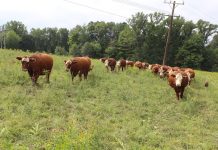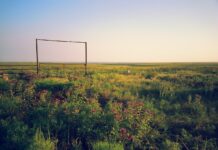China has long been a Sleeping Giant, a vast geographic, political and human resource that can squeeze countries with a single step because of sheer size and economic magnitude.
We’re all a little uneasy about China. It’s huge, mysterious, and carries a political history of suppression and violence we’re not convinced is buried.
Today, China sits as a Calculating Giant, assessing its options, positioning itself for continued dominance — particularly on the world food scene.
I recently learned the Chinese government is encouraging domestic companies to buy farmland in South America and Africa as insurance for food security. The government is specifically supporting purchase of land for soybean, banana, vegetable and edible oil crops, according to a report in the Financial Times. It is also investing in Indonesia to grow energy crops and produce biodiesel. (China is not the only country to do so. Another newspaper account said Libya is buying farmland in Ukraine, and other Arab states are buying land in Latin America and Africa.)
What’s that mean? Obviously, China recognizes its limited resources and the value of food, and biofuel potential. While international trade is an economic driver and global bargaining chip, a country lives and dies on its ability to feed its people. Domestic food security is something the U.S. takes for granted, but most countries do not. Just ask Israel. And now China.
According to the USDA, China is the world’s largest agricultural producer and consumer. It holds 10 percent of the world land resources and 6 percent of the water resources. It produces 20 percent of the world’s corn, 37 percent of the world’s fruit and vegetables and half of the world’s pork.
It got there by increasing production efficiency — catching up to the developed world in terms of livestock genetics and breeding, seed improvement, crop nutrient programs and infrastructure development. By the turn of the century, the USDA reports, China had more agricultural researchers than any other country, and a larger budget for ag research than any developing country.
That increased production hasn’t come without cost, however, as the USDA claims China’s “current exploitation of land and water resources is either at or beyond sustainable levels.” And farmland is being converted into industrial and urban uses, increasing the pressure for production from still more marginal land.
Looking at these constraints, plus the days of “easy” production gains behind it, China’s future agricultural production may find slower going. It may find its domestic market will gobble more of its production, leaving less to export.
I don’t think, however, the U.S. can look to China’s population and its expanding food demands as THE market for our agricultural exports — which has been the mantra for commodity groups over the last 15 years. There will be opportunities in the Middle Kingdom, to be sure, but it shouldn’t be our focus.
We, too, should concentrate on domestic food supplies and new bio-energy uses. We need to match the other economic giant stride for stride.
(Editor’s note: I’ve had a small insider connection to China the past 16 months. My niece, Stephanie, is living and working in Beijing, part of an 18-month international MBA program. She’s shared her experiences through an online blog, complete with social and political commentaries, photos and videos. Here’s some of her insight:)
Thoughts from inside China
China is a developing country. Developing. That means coming out of poverty. Here you have the world’s largest population, finally emerging into the world, but still far from the level of wealth or comfort of the average American.
There are serious growing pains, but from their perspective, they feel they have the same right to the pursuit of happiness as Americans like to say. …
Attacking one’s own government in the U.S. is expected. If you are educated, you should have an opinion and be able to critique with the best of them. This is the same and even more intense in Europe. … If you look at a country like China, however, the government is the people. There is little separation and certainly no open or permitted critique. Thinking and ideology have been fused together over the centuries, so not only can those who are “trouble-makers” not get that far anyway with their individualistic ideas, but the majority who aren’t looking for trouble are being slapped in the face every time the country is humiliated in the global scene [i.e. the Olympics protests].
— Stephanie Brown, Beijing, China












